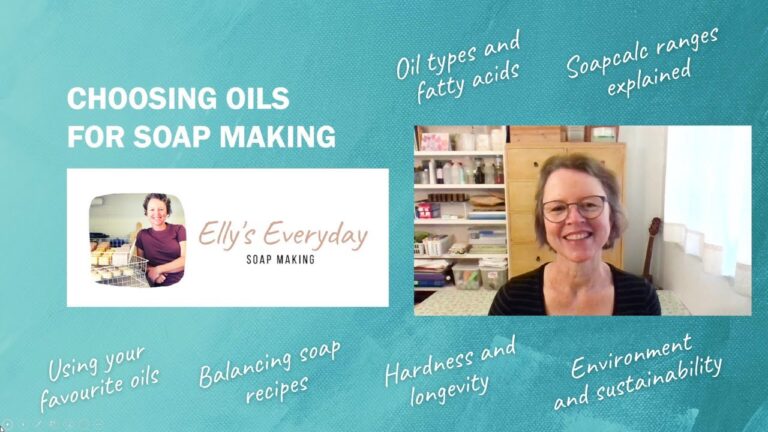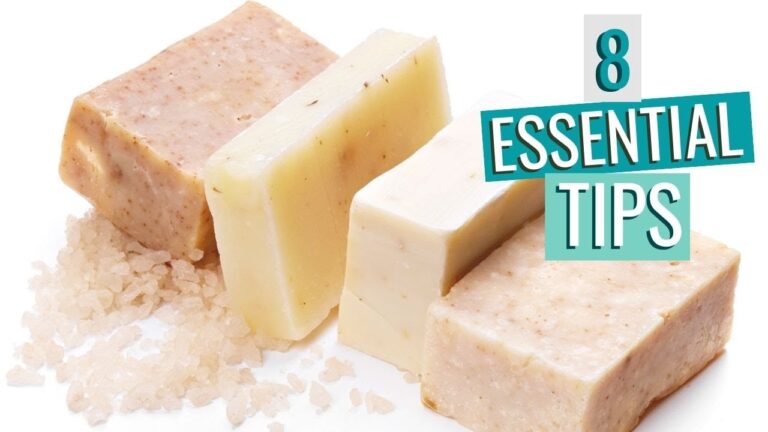When it comes to soap making, choosing the right oils is essential for creating a high-quality product. The oils you select can affect the soap’s lather, hardness, and moisturizing properties. With so many options available, it can be overwhelming to know where to start. In this article, we will break down the key factors to consider when choosing oils for soap making, helping you create the perfect blend for your needs.
What essential oils work well in soap making?
Looking to add some invigorating scents to your soap? Look no further than rosemary essential oil. With its beautiful, herbal and woody fragrance, it’s a versatile scent that appeals to both men and women. Not only does it hold its scent well in soap, but it also pairs perfectly with a variety of other essential oils such as lavender, patchouli, lemongrass, and peppermint. Incorporating rosemary essential oil into your soap-making routine will elevate your product to a whole new level of freshness and appeal.
Which oils are cleansing in soap making?
When it comes to soap making, using ultra cleansing oils like babassu oil, coconut oil, murumuru butter, palm kernel flakes, and tucuma seed butter can help create a deeply purifying product. These oils are known for their ability to effectively cleanse the skin and remove impurities. Additionally, the condition of the soap plays a crucial role in how well it will nourish and moisturize the skin, making it important to consider both cleansing and conditioning properties when formulating soap recipes.
By incorporating ultra cleansing oils such as babassu oil, coconut oil, murumuru butter, palm kernel flakes, and tucuma seed butter into your soap making process, you can create a product that not only effectively purifies the skin but also leaves it feeling nourished and moisturized. The balance between cleansing and conditioning properties is essential in creating a soap that not only removes impurities but also maintains the skin’s natural moisture barrier. Taking into account these factors can help you create a high-quality soap that promotes overall skin health and cleanliness.
Which oil is the most affordable option for making soap?
The cheapest oil to make soap with is often considered to be coconut oil. Coconut oil is readily available, affordable, and produces a luxurious lather in soap-making. Its high levels of lauric acid also contribute to the cleansing properties of the soap, making it an ideal choice for those looking to create a budget-friendly yet effective homemade soap.
Maximize Your Soap Making with the Best Oils
Are you looking to take your soap making to the next level? Look no further than the best oils for maximizing your soap making potential. By incorporating high-quality oils, you can create luxurious, moisturizing soaps that will leave your skin feeling soft and smooth. Whether you prefer coconut oil for its cleansing properties, olive oil for its nourishing benefits, or shea butter for its creamy lather, choosing the best oils is essential for creating top-notch soaps.
When it comes to maximizing your soap making, choosing the right oils is crucial. Coconut oil is known for its ability to produce a rich lather and cleanse the skin, making it a popular choice for soap making. Olive oil, on the other hand, is prized for its moisturizing properties, leaving the skin feeling hydrated and nourished. For a creamy and luxurious lather, shea butter is a fantastic option. By carefully selecting the best oils for your soap making, you can elevate the quality of your products and provide a truly indulgent experience for your customers.
Incorporating the best oils into your soap making process is the key to creating high-quality, luxurious soaps. Whether you are looking to create a gentle and moisturizing soap or a deeply cleansing and invigorating bar, choosing the right oils is essential. With the right combination of oils, you can maximize the benefits of your soaps and create products that will leave your customers coming back for more. Don’t settle for mediocre soaps – maximize your soap making potential with the best oils on the market.
Your Go-To Resource for Selecting Soap Making Oils
Looking to elevate your soap making game? Look no further than our comprehensive guide on selecting the perfect oils for your next batch of handmade soap. From nourishing coconut oil to luxurious avocado oil, we’ve got you covered with all the information you need to create the perfect lather and moisturize your skin. Say goodbye to store-bought soaps and hello to personalized creations with our go-to resource for selecting soap making oils.
Crafting the Perfect Soap: Oils 101
Are you ready to elevate your soap-making skills? Look no further than Oils 101. Understanding the different types of oils used in soap-making is essential for crafting the perfect soap. From coconut oil for a luxurious lather to olive oil for added moisture, each oil brings its own unique benefits to your soap recipe. Mastering the art of oil selection will help you create a soap that is both nourishing for the skin and visually appealing.
With Oils 101 as your guide, you can experiment with different oil combinations to achieve the perfect balance of cleansing and moisturizing properties in your soap. Whether you’re a seasoned soap maker or just starting out, learning about the properties of oils will take your creations to the next level. So dive into the world of oils and start crafting the perfect soap today.
When it comes to choosing oils for soap making, it’s important to consider the properties of each oil and how they will contribute to the final product. By selecting a combination of oils that offer the right balance of cleansing, moisturizing, and lathering properties, you can create a high-quality soap that meets your specific needs. Whether you’re making soap for personal use or for sale, taking the time to carefully choose your oils will result in a product that is both effective and enjoyable to use. Happy soap making!



